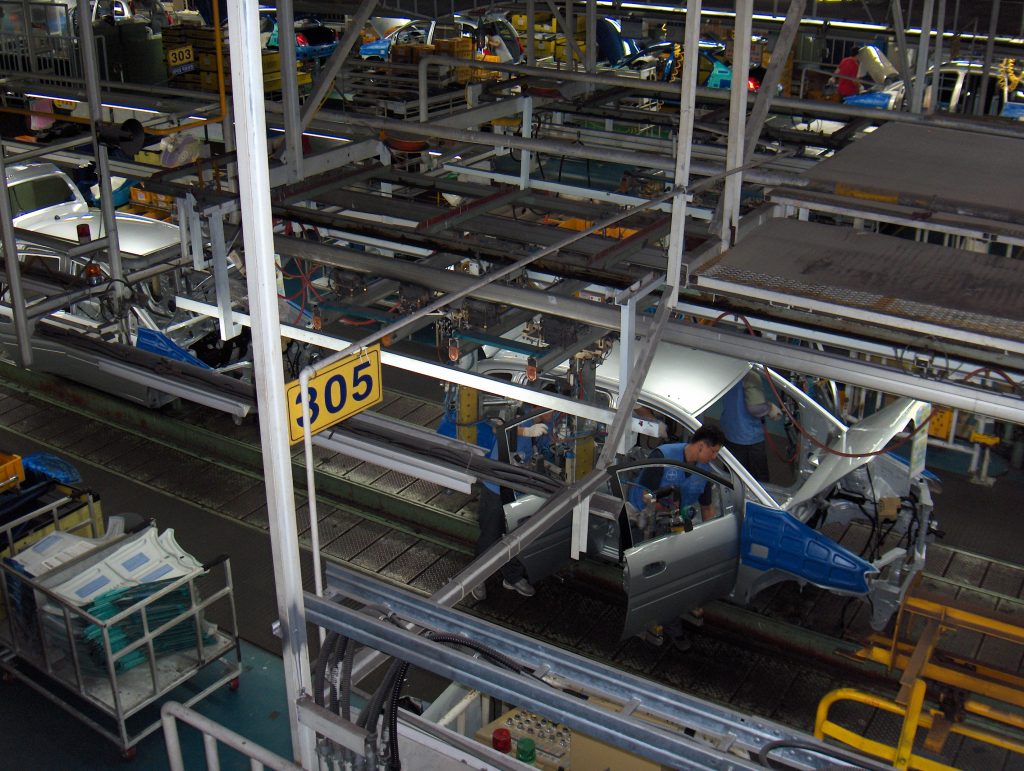
Salford Labour MP Rebecca Long-Bailey today blamed the Government for the ‘devastating’ loss of 3,500 jobs due to the Honda closure in Swindon.
And a Salford University supply chain expert says a further 1,500 jobs could be lost in businesses relying on the plant which is Honda’s only European factory.
But Dr Jonathan Owens, lecturer in operations management at the University of Salford Business School, says the reasons for the closure are more complex than just UK policy or the effects of Brexit uncertainty.
A statement from Ms Long Bailey, who is Shadow Secretary of State for Business, Energy and Industrial Strategy, said: “This Tory government shoulders yet more responsibility for failing to create an environment of business confidence. Businesses have lost faith in the government’s austerity programme and total lack of vision or investment for our future.”
Japanese carmaker Honda set to announce closure of Swindon plant in 2022, putting 3,500 jobs at risk, sources say https://t.co/AOg17XBcJG
— BBC Breaking News (@BBCBreaking) February 18, 2019
Dr Owens said that global tends and not just Brexit were to blame, explaining: “The official stance on the decision is that it is based on global trends and not totally on Brexit, as all European market production will consolidate in Japan in 2021.
“In some ways this follows a well trodden path by the UK’s other car manufacturers recently in that the motor industry is in the midst of a global shift due to an international economic slowdown exacerbated by trade tensions and, specifically a massive shift away from diesel cars.
Just in: Honda will shut down its plant in Swindon in 2021 in the wake of the uncertainty caused by Brexit – marking what would be its first ever closure of a vehicle factory in its 71-year history https://t.co/0ghutpVhhd pic.twitter.com/QAy9ykLJiH
— Financial Times (@FinancialTimes) February 19, 2019
“So how much of this announcement is related to Brexit? Certainly there has to be serious questions raised about the how confused the negotiations have been carried out resulting with high level of uncertainty, of what is known and unknown by many industries, so close to the exit date.
“Unfortunately there is a no “one-size-fits-all” approach, however the “Just-In-Time” manufacturing and supply chains will almost certainly be hit the hardest, and this could be another consideration for Honda’s decision to exit in 2021.
“If Honda is seeking to redirect its energies and resources into the electric vehicles (EV) it does make sense to focus on the Asia Pacific (APAC) Region. The APAC EV market revenue is seeing a huge growth with the usage of EVs becoming a new trend in the APAC transportation industry. The higher adoption rates of smart mobility services, government regulations, increasing fuel prices, and growing trend toward adopting non-fossil fuel-based vehicles are supporting the growth of EVs in this region.
“In 2017 it was estimated at $30.1 billion, but expected to grow rapidly to $144.6 billion by 2023. The UK and EU simply has not done this on this scale.
“The eventual tariff-free exports from Japan to the EU are believed to have been a major point in this decision and certainly have not helped the UK’s long-term trading position. The trade agreement signed earlier this month, the remaining 27 states have pledged to reduce tariffs on cars from Japan 10 per cent to zero by 2027, therefore making a Europe-based production facility less attractive. So why is there any need to stay in the UK?”















Recent Comments